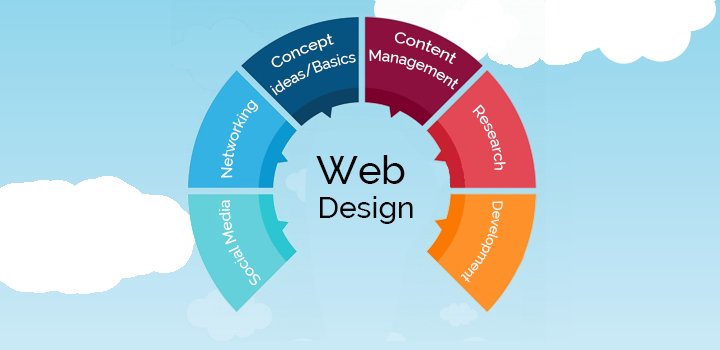
Magento Vs Shopify:
Can’t make your mind between Magento and Shopify? You are not alone on the list, as these two brands are the most popular eCommerce platforms in the market today. Today every eCommerce business is in horde to get more traffic via search engines. However, it is tough to say which among Magento Vs. Shopify are the most SEO-friendly.
The best way to compare these two most popular eCommerce platforms available in the market today is by comparing all their SEO features that Magento and Shopify provides. Therefore, below-mentioned is the guide provided by the experts to compare Magento and Shopify’s SEO features.
Let us begin with considerate the difference among them:
Understand the Basics
Let us understand what makes Magento and Shopify different from each other. We all know that both of them power millions of eCommerce websites, and they offer a platform for retail eCommerce companies to build their online store.
Magento
Magento is an open-source platform that, like WordPress, is free to install onto your computer. You can download and use this eCommerce website builder to launch your eCommerce store. However, web domain, hosting, eCommerce SEO services, and content cost are always there, and you have to bear. It is a bit difficult to use for freshers and beginners as it requires basic coding understanding.
Shopify
This eCommerce platform is an easy-to-use solution for building online stores for retailers. However, Shopify is not free to use; retailers have to pay for the services they provide. It becomes easy to manage your store on Shopify for beginners as it doesn’t require coding language.
# Section 1
Default SEO Features on Magento & Shopify
In quest to understand which platform provides outstanding eCommerce SEO features, you just have to know the default features. This both eCommerce platform provides some inbuilt SEO features for the store owners. However, these features rank higher on search engine page results (SERPs). Most of these features are the same on Magento and Shopify.
Magento
Following are some basic SEO features you get while using Magento:
Auto-Generated Metadata
Page names, meta descriptions, titles, and URLs are very significant in eCommerce SEO. Magento provides automated Metadata generated for the client’s product pages.
Sitemap
Magento provides and generates Sitemap and makes it ready for search engine indexing.
Robots Instructions
Website indexing by search engine robots is significant, there is a ‘robots.txt’ file used to guide such crawlers. These robot instructions are robotically produced on Magento.
Canonical Tags
Magento uses a free featured called canonical tags, that assists in avoiding duplicate product pages.
Snippets
Snippets are essential to rank higher on Google. Snippets are available free on Magento.
Google Analytics Experiments
Google Analytics tracking code is a free feature on Magento to track everything and use the experiment code to do experiments on page rankings.
Shopify
Below-mentioned are the free SEO Features provided by Shopify:
Meta Data
Just alike the Magento, Shopify also provides metadata enhances eCommerce SEO.
Sitemap
Sitemap is also default and robotic feature provided by Shopify.
Robot Instructions
Shopify automatically generates a “robots.txt” file to guide search engine crawlers
Canonical Tags
Shopify also uses a free featured called canonical tags, that assists in avoiding duplicate product pages.
Redirection
Edit and rewrite URLs and Shopify will robotically redirect to it.
Auto H1 Tags
H1 tags for the pages is automatically generated.
Snippet Previews
Snippets matters a lot in SEO packages which can easily promote the rich snippets with Shopify platforms.
# Section 2
SEO Problems on Magento & Shopify
Following are some basic SEO problems one will have to come across on Magento & Shopify.
Magento
Duplicate Content
Users may come across duplicate pages showing up on search engines after using canonical tags.
No HTML Sitemap
You cannot produce HTML based sitemap that is significant in eCommerce SEO.
Non-Editable Snippets
In Magento eCommerce platform snippets are not editable.
More Technical
It becomes very difficult to understand the user interface and SEO strategies on Magento.
Shopify
Duplicate Content
Duplicate product pages are most known issue on eCommerce platforms, Shopify websites also overcome it.
No Control on Snippets
Snippets on Shopify platform cannot be edited
No Control on URL Structure
No one have control on URL Structure of a Shopify website.
No More Customizations
Shopify uses more automatic features that makes it very less customizable.
Limits on Metadata
On Shopify websites metadata is always limited to a specific number of characters.
# Section 3
Magento Vs Shopify: Advanced SEO Features
Advanced SEO features and functions can be accessed with plugins or apps. Both of these platforms have their own app stores; hence one can install SEO application or plugin from there.
Magento
Magento comes with 350 + SEO plugins available in the Magento marketplace. Out of these 350+ applications, 100+ are free to use
Shopify
Shopify app store has 500+ apps to use for eCommerce SEO, out of which 270+ are free to use while other apps are paid.
Well, suppose you want to know more about these great eCommerce platforms Magento and Shopify. In that case, you can reach experts at JeewanGarg by calling +91-9350809090, and the experts here will provide you with all the valid information about these eCommerce SEO platforms.
Everyone wants to ensure that he/she extracts maximum ROI from the e-commerce project he/she owes but do you know, what is the most important thing to achieve this? The answer is: "The choice of the platform" and to know exactly "How to Start Online Store". Yes, you heard it right, the choice of platform makes a big difference and you need to power your e-commerce store with the best platform. You can find a flood of blogs and articles for comparing platforms like Magento vs Shopify and many more. However, the real deal is to narrow down the scope to the two ultimate solutions (Magento & Shopify) as these platforms have long dominated the industry. We will discuss in the article all the pros and cons of both the platforms. But there are some huge fundamental differences between these platforms that you need to be well aware of before we go on making a comparative evaluation of these two platforms.
● Magento is a free Open-Source Software, while Shopify is a commercial product for which you need to pay.
● Magento requires your own hosting as well as it wants you to install, setup and configure everything before you actually start creating your store. That requires a bit of web development and programming skills. However, Shopify is a hosted solution that means your store is hosted by the Shopify itself.
● Magento is flooded with unique features making it suitable for advanced developers whereas, Shopify is more suitable for beginners as it is a simple user interface.
Keeping these differences in mind, let us head to a fully fledged comparison of Magento vs Shopify:
Comparison: The Pros & Cons of Magento & Shopify
1. Magento Pros:
A. Owes a big User Support System:
The foremost important benefit of Magento is their big community of Customer Support that means if you get into any trouble then you can ask the Magento Forum as they have an answer for everything for getting you online as quickly as possible. Moreover, you can search for your query on the huge user generated database also. On magento user support system you can find quite a comprehensive explanation to whatever you’re looking for in an easy to understand language. Furthermore, you have an option to consult with other Magento users as they’ve been in the same position before as you are now. That means that they know what & how you need to do and can explain it in an easy way.
B. Flexible Platform with Complete Freedom
When you will use Magento, you will come to experience that there are no limitations to how you design your store. However, you must possess some coding expertise or you hire someone to do it for you. But the good thing about it is that, you can make it really personal, unique and original so that you make yourself stand out from the crowd. This uniqueness & originality helps your buyers to remember your store and come back to you again. But, if you’re not having the coding knowledge or skills or else you don’t have the budget to hire a developer then you should better use Shopify as your e-commerce platform as you can achieve very similar results there, in around half the time on Magento.
C. Cost
As we have mentioned it above that Magento is an open-source platform which means it is available in the public domain and therefore it is free to use. However, one thing you need to remember with Magento is that you will have to pay for your own hosting.
2. Magento Cons:
A. It Requires Coding Expertise
Magento can be a very challenging platform for you with a steep learning curve in case you’re a non-technical person or you may need to take Magento Web Development Services. When it is compared to Shopify (a platform that provides a much more easy & straight forward website building experience), then choosing Shopify over Magento will be an option for you. Because if you’re not technology-confident then you will be surprised to know what kind of e-commerce store you can achieve with Shopify and that is with little or no problems at all. With Magento, there are chances that you will be running into difficulty.
B. It Requires a Significant Time Investment:
Getting familiarized with Magento’s interface can be a very time-intensive process. And it can be a little challenging task for the first-time user so it’s best to get some time out to understand the platform before getting stuck into building a website site. You need to be prepared to spend a good amount of time for doing the coding as well as to get your site’s look exactly as you ever thought of. But it may not be the platform for you if you’re looking to get online quickly.
C. Cost
Although, Magento is free to use platform but the hosting and app costs can make Magento pretty pricey. Because as your store grows, there is a need to pay more money for hosting. If you want to have an e-commerce platform that doesn’t become expensive in terms of hosting costs, with the growth of your store then Shopify is the way forward for you. Moreover, more of Magento’s apps come up with an installation or yearly fee. The cost generally be around $100 per app and that also can increase very quickly if you want to have some advanced functions into your store. Furthermore, you may need to hire a Magento e-commerce development company, that also can be a pretty high financial investment.
3. Shopify Pros:
A. Encompasses Mobile-Ready Storefront Themes:
The online store created in Shopify automatically optimizes itself for different screen sizes of different devices. This is, in fact, a great option because as we all know there are more mobile shoppers than ever now. According to the statistics, 69% of consumers between the age group of 18-39 use mobile to search for the products before they buy. They may then use a desktop to complete their purchase but remember they got pushed to convert from the mobile device. That means, your products need to shine on mobile the most. Moreover, Shopify allows you for Marketing in Shopify, that means you can promote your products on Facebook and on Google directly from Shopify.
B. Comprehensive e-commerce website builder:
Shopify possesses a large App Store that can extend the functionality of your site and Shopify is a great platform to take your store to the next level by boosting up the bottom line of your store. Shopify’s App Store is just like the Apple App Store but for websites! Now think how the Apple Store allows you to do so much more with your smartphone in the same manner Shopify allows you to do anything with your website. Moreover, Shopify Possesses some very simple website templates for beginners.
C. Easy to use with 24/7 support
Shopify possesses a 24/7 support and it is always there for you if you get stuck. So, in that case, you can resolve the problems you are facing more quickly and can focus on making great sales. They have something available to suit everyone’s taste in the form of 24/7 phone support, live chat, and email functionality. There is a really nice forum community of Shopify also where people can exchange their website building tips or some general business tips with other users.
4. Shopify Cons:
A. Only a few of their themes are free
In Shopify, if you come with a mindset of using the free themes then it will narrow down your choice of getting a very unique e-commerce store. For giving your store the look you want or the shopping experience your customers are looking for, you must use the premium themes of Shopify that are well worth the investment.
B. Increased Complexity with lots of apps
The use of multiple apps in Shopify can increase the complexity, so if you are worried about the complexity of the platform then you must only choose the apps that can properly benefit your store. With so many choices of the apps make you happy at first, but an added caution is needed while choosing the apps. As per our recommendation, you should firstly go with integrating your Instagram feed for showcasing your products as doing this is quick and easy to do. As your store grows you can consider adding an email marketing app that will help you in growing your sales as well as in maximizing buying potential of customers.
C. They charge a transaction fee per sale
Shopify though charges a fee on every transaction but this can be decreased when you invest in a more inclusive plan. According to the different plans, Shopify rewards you with lower transaction fees so that you will able to make more money on each sale. There is an alternate method to waive all transaction fees. You can simply use Shopify Payments “Shopify’s own Payment Processor”.
Wrapping Up:
So here while wrapping up we just want to say that Magento vs Shopify is a common battle in the E-Commerce market in India and rightly so as both the platforms are very big and have a lot of functionalities to offer. We have discussed all the pros and cons of both the platforms above. You can refer this guide to choose a suitable E-Commerce Platform as per your business’ requirement. In case you have any further queries you can connect to the leading E-Commerce Website Development India Company.








